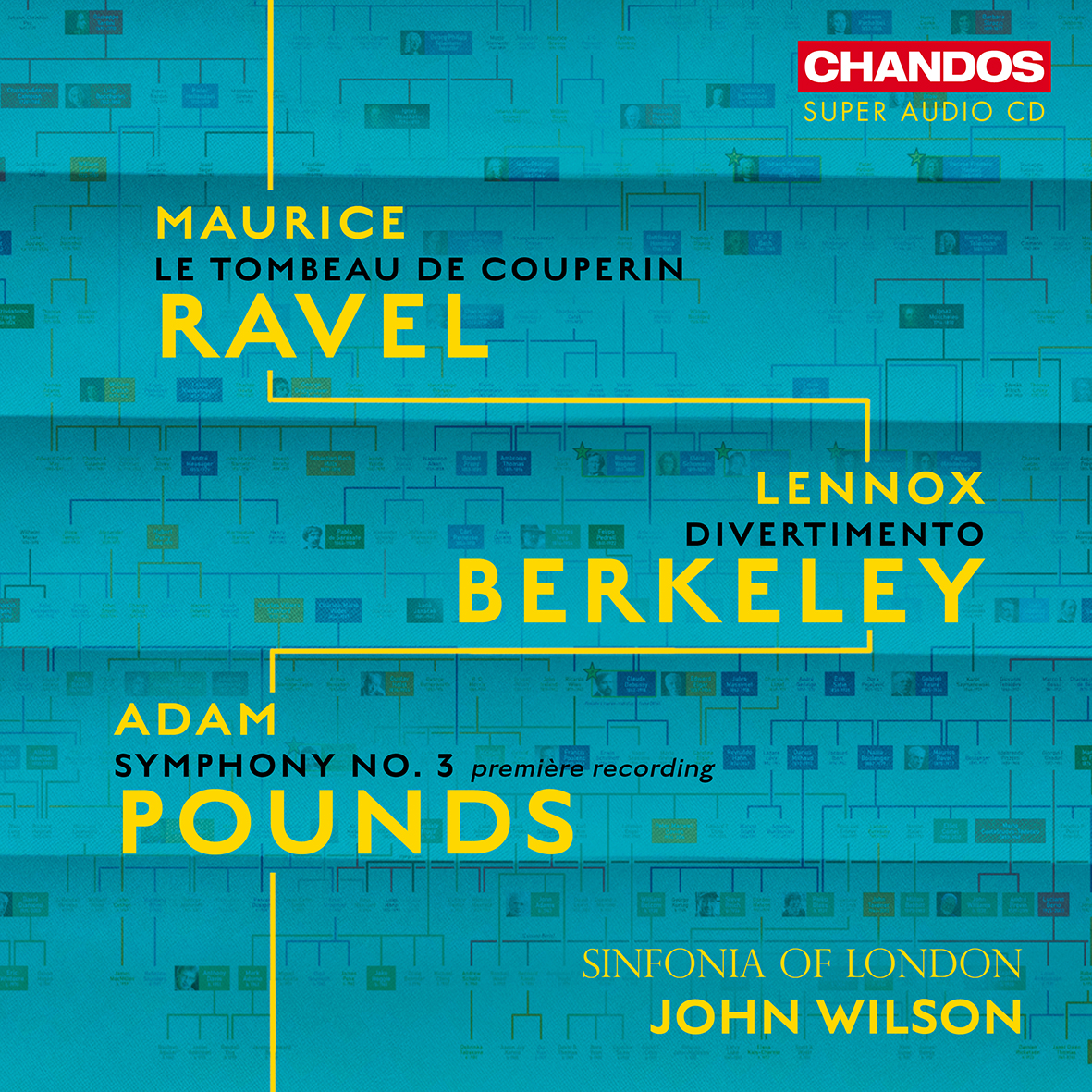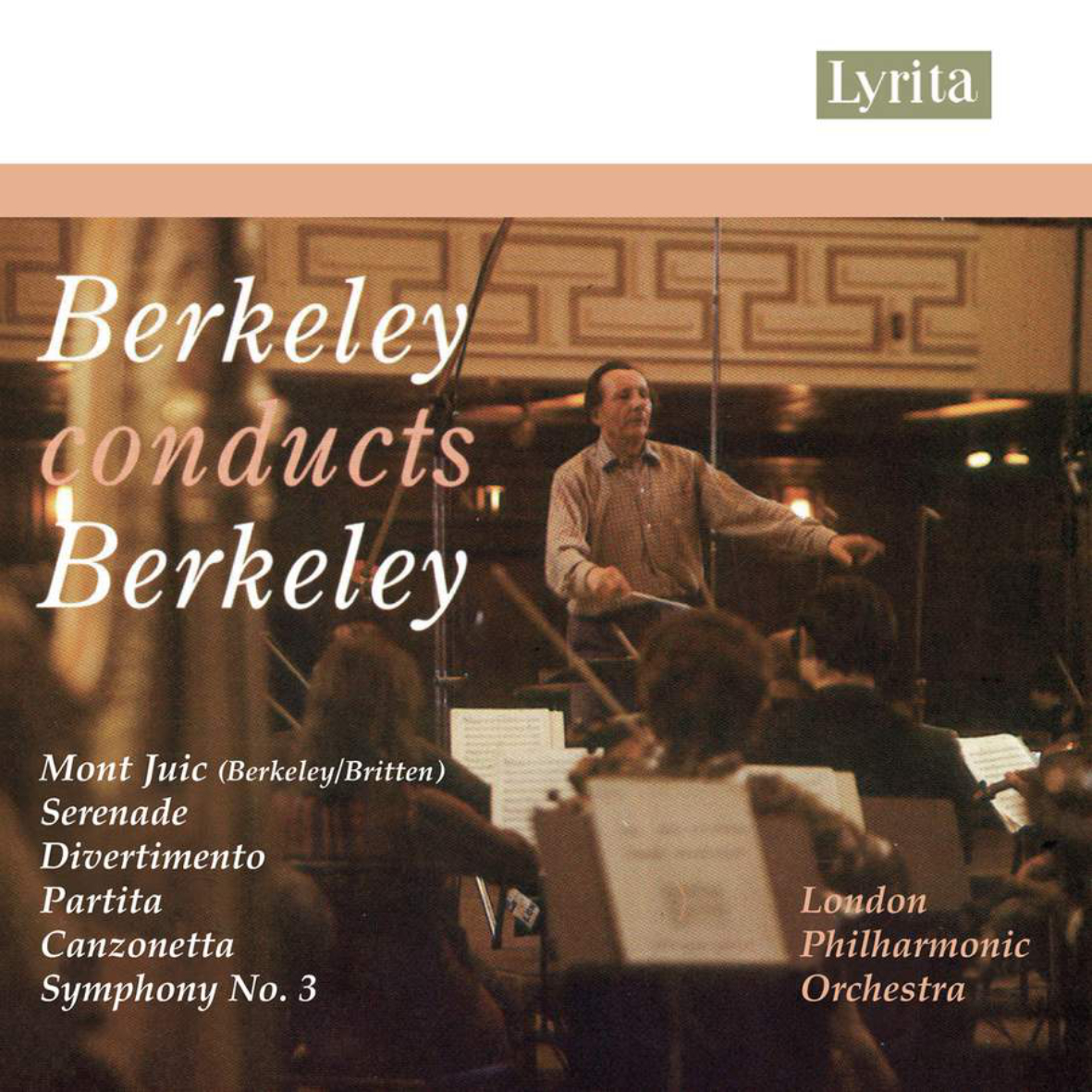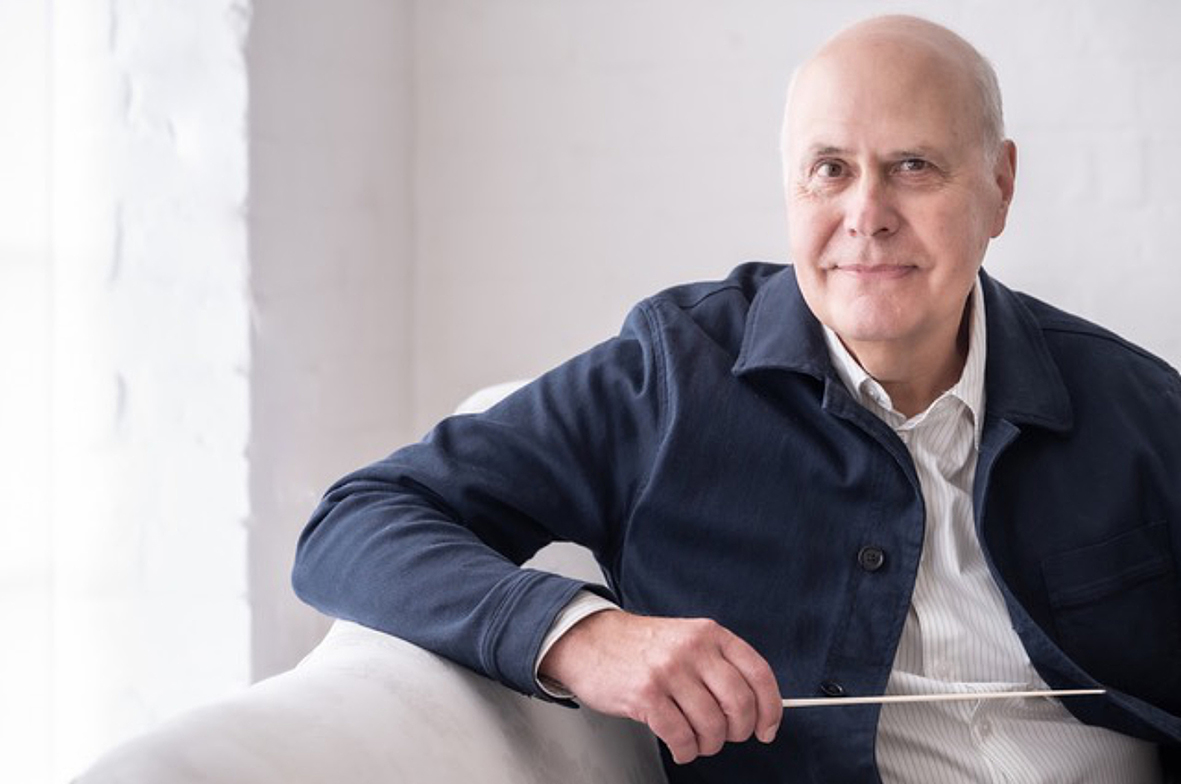Berkeley Society grants bear fruit in four major new recordings
Tony Scotland on four major recordings - and newy republished score - resulting from Berkeley Society grants.
One of the most effective ways in which the Society is able to promote Lennox Berkeley’s music is through the award of grants. These are supported by the subscriptions of members and other charitable gifts, and our Committee meets four times a year to consider applications from artists, young and established, for grants to finance concerts or CDs. In the past two years the Society has given four large grants which have borne fruit in a flurry of new recordings introducing Berkeley’s music to new audiences, while at the same time, burnishing his reputation.
The London Choral Sinfonia’s revival of Berkeley’s Variations on a Hymn by Orlando Gibbons, was a world premiere recording of a major work which had fallen into neglect since its first performance at Aldeburgh in the 1950s. 1 Conducted by Michael Waldron and featuring the tenor Andrew Staples, the CD was warmly praised by the musical press. The Gramophone wrote that ‘Gibbons’s haunting tune – and Berkeley’s cannily resourceful treatment of it – are memorable components in a work of considerable substance, immaculate craftsmanship and expressive power’.
This spring the Royal Shakespeare Company releases the first recording of Berkeley’s forgotten incidental music for a Stratford production of The Winter’s Tale in 1960. It includes ‘The Storm’ from Act III when Antigonus abandons Leontes’ baby daughter in ‘a savage clamour’ of howling wind, pouring rain and thunder. There’s more about this new album, and how to buy it, on pp. 22 and 23 of this Journal.
And in June comes the first complete recording of the Five Housman Songs, which Lennox wrote when he was still agonising over his break with Benjamin Britten at the outset of the war. This is paired with his setting of de la Mare’s Songs of the Half-Light, written for Peter Pears in 1964. The singer, in this recording supported by The Lennox Berkeley Society, is the tenor Robin Tritschler, who brings a rare and poignant understanding of the words and music of both works. He’s accompanied in the Housman by the pianist Malcolm Martineau and in the de la Mare by the guitarist Sean Shibe – a trio of celebrated artists whose performances are bound to cause ripples of interest when the disc is finally released. In the 2023 Journal, in anticipation, we published Robin Tritschler’s notes on the Housman Songs, and in this Journal (on pp. 15 to 17) you can read his notes on the Songs of the Half-Light – and find the album details.

The fourth of the new CDs to arise from the Society’s bold ‘investments’ has a programme that’s built on a musical family tree. It’s a recording on the Chandos label of Berkeley’s Mozartian Divertimento in B Flat, together with a ‘baroque’ masterpiece by his mentor, Ravel, and a grand new symphony by Lennox’s student, Adam Pounds (a former Chairman of The Lennox Berkeley Society). All three pieces are brought to vivid life by the virtuosi of the Sinfonia of London, conducted by John Wilson, in what The Gramophone’s Andrew Achenbach calls ‘a sumptuously engineered programme’.
Writing in this Journal, in 2018, Adam Pounds described his teacher’s Divertimento as ‘beautifully balanced and coherent in its overall structure, with each movement complementing the next … never emotionally over-stated and yet the climaxes are strong and moving.’ He argued that Berkeley revealed ‘different sides of the human psyche – exuberance and strength in the first movement, and considerable darkness, tempered with bitter-sweet phrases, in the ‘Nocturne’ second movement’, with playfulness and good humour in the 'Scherzo' and 'Finale'. This, he concluded, was ‘a quality opus that needs to be performed a lot more’. No sooner said than done – with reviews which, as Ash Bridges noted in his LBS Newsletter in March, have been ‘overwhelmingly positive’. Andrew Achenbach, writing in The Gramophone, described the Divertimento as ‘hugely engaging, pithy and characteristically elegant’, and thought that ‘Wilson and his hand-picked group respond with conspicuous finesse and plenty of ebullient sparkle’. But there was a caveat: in Achenbach’s personal view Berkeley’s own recording of the work with the LPO in 1973 brought out ‘a delectably unforced quality and strength of personality not quite equalled here.’ 2

The independent American critic David Rowe called the work ‘charming’ and ‘marvellous’, but he had something of the same reservation about this new recording. When the Divertimento was first performed during the war the British critics saw it as ‘light’, ‘pretty’ and ‘balletic’, but what he called Wilson’s ‘strange reading’ made it ‘rather melodramatic and overladen with anxiety, exacerbated by his anxious violins’. Nevertheless Rowe said, ‘There is no denying the vigor and enthusiasm he brings to it, in the typical John Wilson way of whipping up excitement’.
Paul R. A. Jackson, on MusicWeb International, remarked that the Divertimento was as ‘elegant and refined’ as all Berkeley’s work, and it was good to have another recording of ‘this neglected gem’. Each movement was ‘perfectly balanced in form and content’ and the ‘sweetness of the melodies [is] tempered by some naughty dissonances’ which add a ‘piquancy’ to the musical mix’.
In The Guardian, Fiona Maddocks thought the Divertimento was ‘an elegant, many-faceted work, with French accents, worthy of a place in the mainstream’, and the Sunday Times wrote of its ‘balletic fluidity, astringent strings and skittish inventiveness’. All the critics acknowledged the fine performance by John Wilson’s Sinfonia of London, which Fiona Maddocks described as ‘fast becoming one of Europe’s elite orchestras’.
Happily the new recording of the Divertimento arrives at the same time as a new edition of the full score and orchestral parts (see p. 43), published by Chester Music, and funded by a substantial grant from The Lennox Berkeley Society. Chester Music and the Society are planning to cooperate on revisions of other Berkeley scores, which will come as welcome news to conductors and performers who have to rely on publisher’s hire material to prepare their performances and recordings.

If John Wilson’s new disc has revived one of Berkeley’s neglected masterpieces, it has also introduced a new orchestral work to the repertoire. Adam Pounds wrote his Symphony No 3 during the dark times of Covid, to reflect ‘the sadness, humour, determination and defiance’ of the response to the pandemic and the lockdowns. It’s dedicated to John Wilson and the Sinfonia of London, and, as the British Music Society reports, ‘they repay the honour with a performance of searing conviction and intensity’.
The work has four movements, written in a tonal mode, ‘with’, John France reports on MusicWeb International, ‘little in the way of harsh dissonances and few modernistic melodic or rhythmic devices’. The second movement, ‘Tempo di Waltz’, is in the tradition of a danse macabre, which France describes as ‘a tour de force of orchestral writing’, and the slow central ‘Elegy’, a homage to Bruckner, ‘is quite beautiful and deeply moving’. John France concludes that despite its genesis the symphony is filled with optimism, and forms ‘a splendid addition to the British symphonic repertoire’. David Rowe hails it as ‘a notable and important new British symphony, given the best possible advocacy by John Wilson and company’, and he adds that ‘the Chandos recording is excellent and the playing is sensational’.
Geoff Pearce, on the website Classical Music Daily, goes even further: ‘The Pounds work,’ he writes, ‘is a revelation and I would buy this disc just for this alone.’ 3